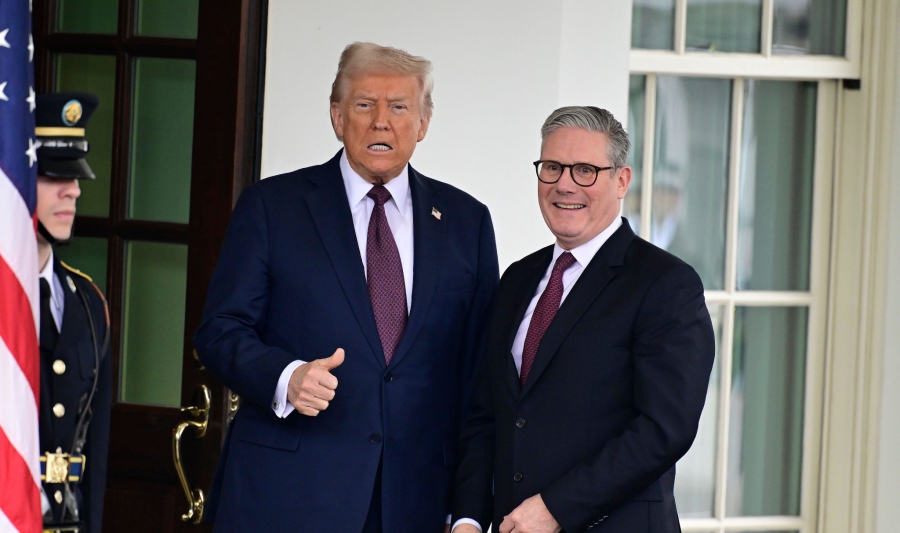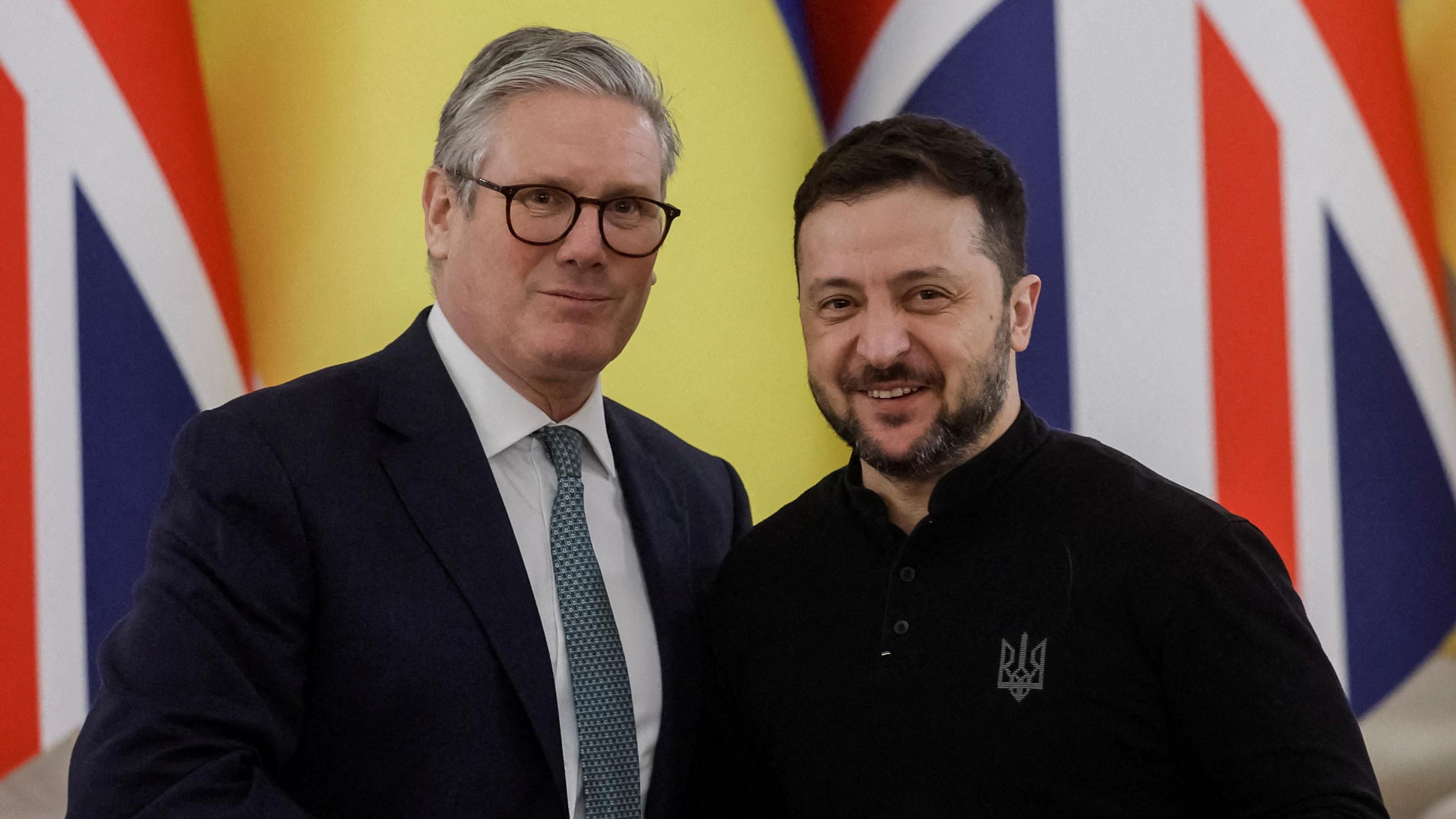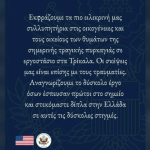Bombshell revelation: Zelensky’s most loyal ally secretly spoke with Putin – Uproar in Britain, anger in the USA over the secret contact

The National Security Adviser to UK Prime Minister Keir Starmer, Jonathan Powell, the “mentor” of Ukrainian President Volodymyr Zelensky, had contact with the Russian side, as Moscow has also confirmed.
A stunning revelation about the secret communication between Russia and Britain on the Ukraine issue is coming to light, causing turbulence mainly in the United Kingdom and Europe.
As revealed, Jonathan Powell, National Security Adviser to UK Prime Minister Keir Starmer and “mentor” of Ukrainian President Volodymyr Zelensky, had contact with the Russian side, as Moscow confirmed.
However, Russian officials say the conversation failed to open a channel for meaningful dialogue.
Communication between Britain and Russia
According to statements by Kremlin spokesperson Dmitry Peskov, Powell indeed attempted to establish contact with the Russian leadership in early 2025, communicating with Yuri Ushakov, a close aide to the President of Russia.
His purpose was to convey the position of the United Kingdom and the European Union countries on security matters, particularly against the backdrop of concerns about the stance of U.S. President Donald Trump regarding the Ukraine issue.
However, as Peskov emphasized, the dialogue did not advance because the British adviser appeared to be exclusively interested in conveying European positions without showing any willingness to listen to Russian views.
“There was a strong desire on the part of the interlocutor to speak about the position of the Europeans, but there was a lack of intention to listen to ours. Under such conditions, mutual dialogue did not work,” Peskov stated.
Ushakov himself described the conversation as “boring” because it focused solely on the official position of London, without examining proposals or potential areas of cooperation.
Why did the British want to speak with the Russians?
The Financial Times (FT) report that Powell’s initiative was the result of concerns in Europe regarding U.S.-Russia relations and the uncertainty surrounding the American handling of the Ukraine crisis.
The British side wanted to express European positions directly to Russia, hoping to open an informal line of communication with the Kremlin leadership.
However, the attempt did not receive universal support within the European Union.
Some EU officials feared that the British initiative would provoke displeasure in the Trump administration, given the efforts by both the USA and the EU to bring Russia to the negotiating table over Ukraine through sanctions.
Ultimately, after the initial conversation, Powell made no further attempt to contact Ushakov, even after the U.S.-Russia summit in Alaska in August 2025.
Meanwhile, Starmer’s office assured that communication with the Russian government continues regularly through the embassy in Moscow.
According to the FT, the move was not part of a coordinated G7 framework but an initiative by the United Kingdom, with the silent support of certain European leaders.
The main concern driving the initiative was the possibility that U.S. policy under Donald Trump might shift away from European positions on Ukraine, leaving Europe sidelined.

Moscow-London relations on a razor’s edge
The incident fits into a broader context of tension between Russia and the United Kingdom.
Moscow has repeatedly accused London of obstructing peace initiatives for Ukraine and providing military support to Kyiv.
In March 2025, Russian ambassador to London, Andrei Kelin, commented on plans by Western allies to send military forces to Ukraine.
At the same time, Russian Foreign Minister Sergey Lavrov accused the UK of assisting Ukrainian “terrorist” actions against Russia.
Along similar lines, UK Defence Secretary John Healy stated that this year London provided Kyiv with the largest amount of military aid to date, while the head of MI5, Eliza Manningham-Boller, asserted that Britain is effectively in a “new type of war” with Russia, through cyberattacks and espionage activities.
The attempt by London to communicate with Moscow demonstrates that, despite political and military tensions, there remains a desire for diplomatic dialogue.
However, the failure of the conversation highlights the deep differences in the two sides’ approaches, as well as the heightened strain in UK–Russia relations and, more broadly, West–Russia relations.
The situation remains fragile, with diplomacy trying to find channels of communication within a framework of mutual distrust and geopolitical tension.

Deep concern in Europe and the UK over Trump and Ukraine
The UK’s initiative comes at a time when European capitals fear that U.S. policy, under Trump, may shift toward unilateral negotiations with Russia, bypassing the European bloc.
The idea was that the United Kingdom, through Powell, attempted to ensure that the “European voice” would be heard directly, before others (the USA) gained a monopoly over communication with Moscow.
The fact that the attempt was not part of a G7 framework or a broader coalition, but rather unilateral (with support from some European states), makes it more vulnerable to criticism for lack of coordination and full backing.
Also, according to the FT, after the first contact, there were no further communication efforts from Powell, not even during the U.S.-Russia meeting in Alaska in August.

Connection with Ukraine and the USA
The contact took place within the context of the ongoing Ukraine crisis and the shifting stance of the USA.
The key point is that the European side feared that the USA, under Trump, might change course or bypass European positions altogether.
This made it crucial for the United Kingdom to intervene early.
The same context explains why Russia was not enthusiastic about the conversation, it may have viewed it as communication meant mainly to deliver a message rather than engage in sincere dialogue.
The failure of the Russia-UK contact may send the message that the United Kingdom (and Europe as a whole) does not currently possess sufficient influence to open dialogue with Russia.
Moscow, for its part, seems to confirm that it views Britain/Europe more as message-bearers than as negotiation partners.
This could further strengthen Russia’s strategy of managing communications on its own terms, and engaging with the USA in a different, higher-level manner.
Jonathan Powell’s initiative constitutes a significant indication that the United Kingdom is attempting to assume a role in diplomacy regarding Russia, despite high tensions between the West and Russia.
At the same time, the failure of the contact reminds us how fragile diplomatic lines are when they are not grounded in common foundations, mutual willingness, and strategic continuity.


www.bankingnews.gr
Οι απόψεις που εκφράζονται στα σχόλια των άρθρων δεν απηχούν κατ’ ανάγκη τις απόψεις της ιστοσελίδας μας, το οποίο ως εκ τούτου δεν φέρει καμία ευθύνη. Για τα άρθρα που αναδημοσιεύονται εδώ με πηγή, ουδεμία ευθύνη εκ του νόμου φέρουμε καθώς απηχούν αποκλειστικά τις απόψεις των συντακτών τους και δεν δεσμεύουν καθ’ οιονδήποτε τρόπο την ιστοσελίδα.




